Flathead Lake Data
July-22-2024_Lake-Data
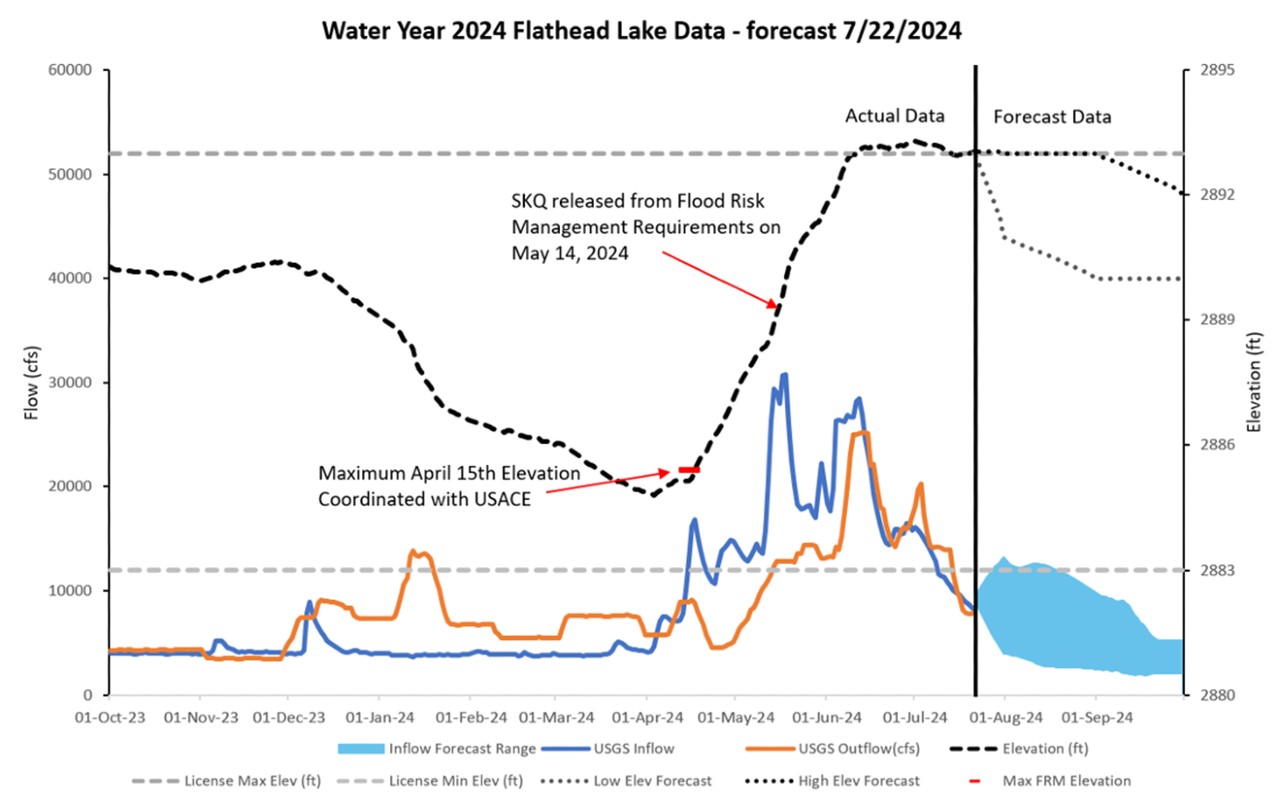
Flathead Lake remains at full pool. The water supply forecasts did not change much this week. Project outflows are likely to slowly decrease as Flathead Lake inflows recede.
SKQ project outflows and the Flathead Lake elevation are dependent on many variables including lake inflows, weather, the demand for electricity, and non-power constraints such as the downstream fishery and flood risk management needs.
July-15-2024_Lake-Data

Flathead Lake remains at full pool. The water supply forecasts did not change much this week. Project outflows are likely to continue decreasing as Flathead Lake inflows recede.
SKQ project outflows and the Flathead Lake elevation are dependent on many variables including lake inflows, weather, the demand for electricity, and non-power constraints such as the downstream fishery and flood risk management needs.
July-8-2024_Lake-Data
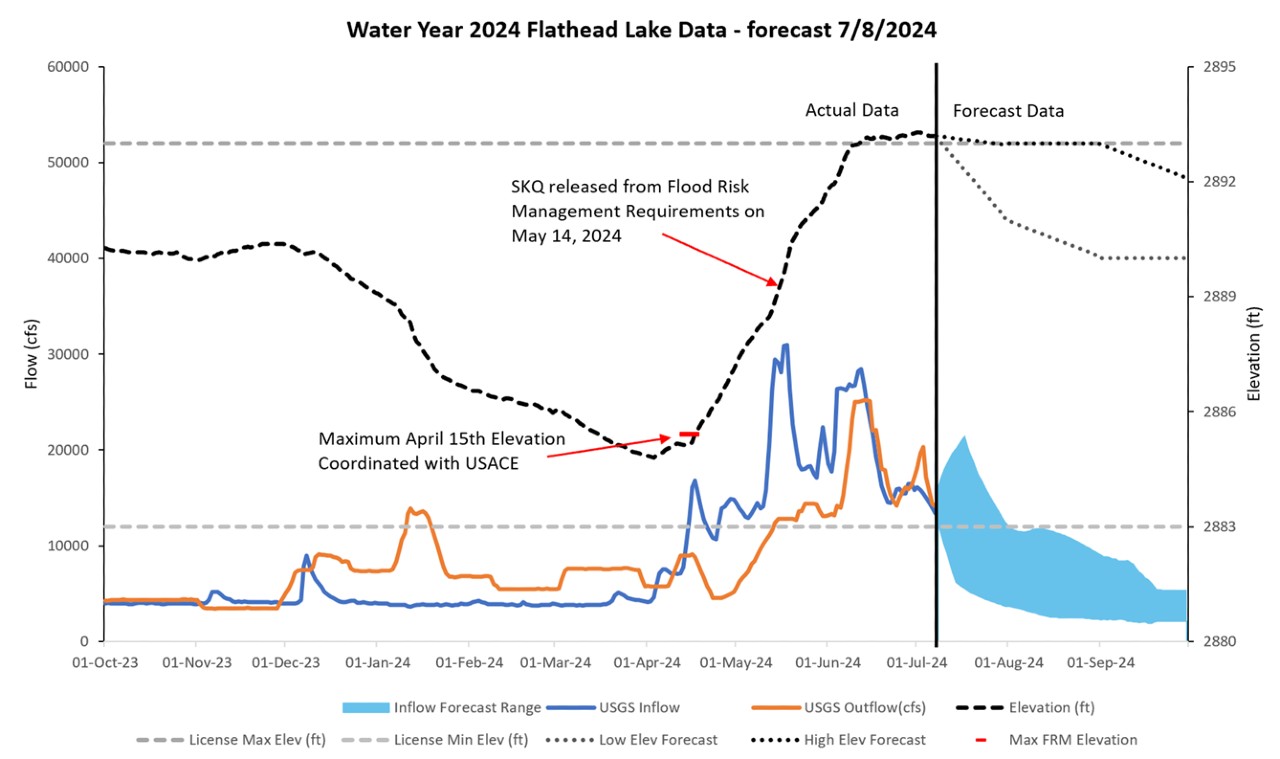
Flathead Lake remains at full pool. Thunderstorms kept the inflows higher than forecasted. The water supply forecasts did not change much this week and summer flow volume remains near 68% of average. Project outflows will continue decreasing as Flathead Lake inflows recede.
SKQ project outflows and the Flathead Lake elevation are dependent on many variables including lake inflows, weather, the demand for electricity, and non-power constraints such as the downstream fishery and flood risk management needs.
July-1-2024_Lake-Data
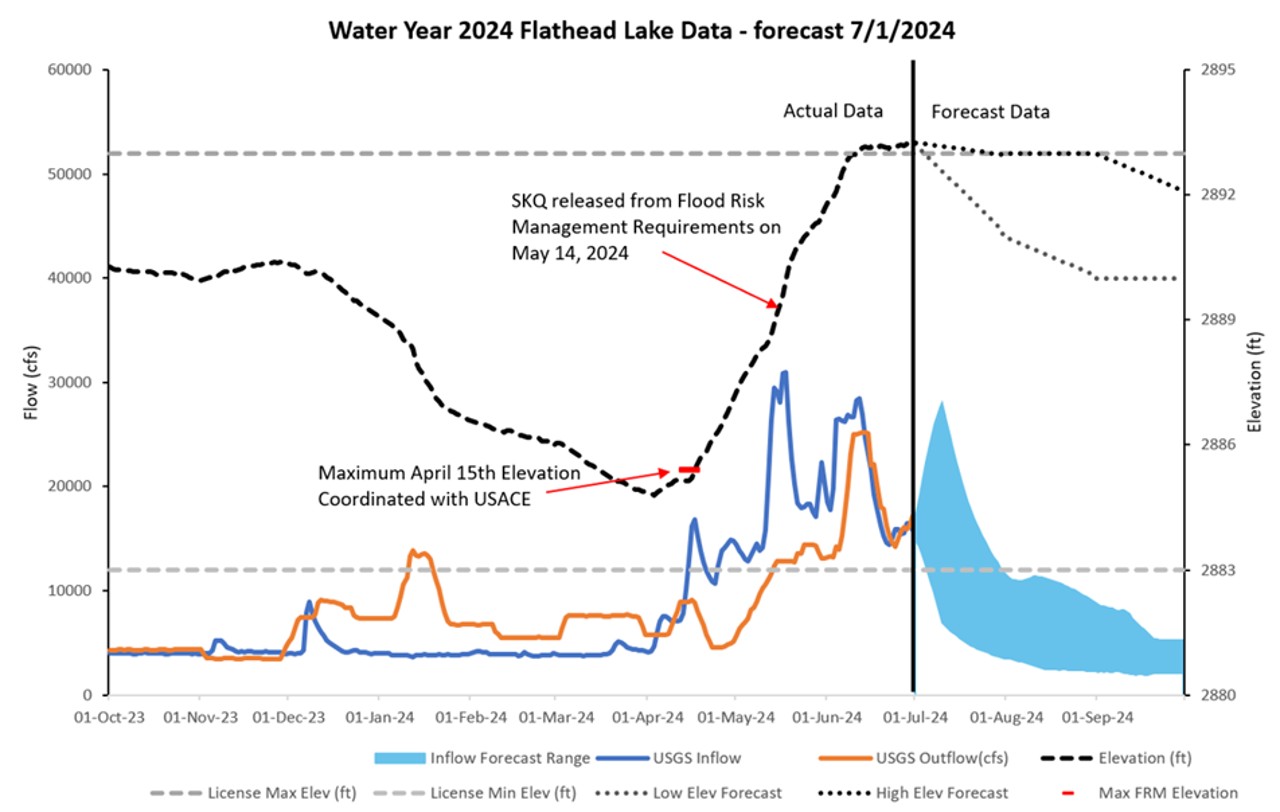
Flathead Lake remains at full pool. June precipitation events kept the inflows higher than forecasted and the lake continued to fill. The water supply forecasts increased almost 5% and summer flow volume is now near 69% of average. Project outflows have increased in the near term and will transition to decreasing once Flathead Lake inflows recede.
SKQ project outflows and the Flathead Lake elevation are dependent on many variables including lake inflows, weather, the demand for electricity, and non-power constraints such as the downstream fishery and flood risk management needs.
June-24-2024_Lake-Data
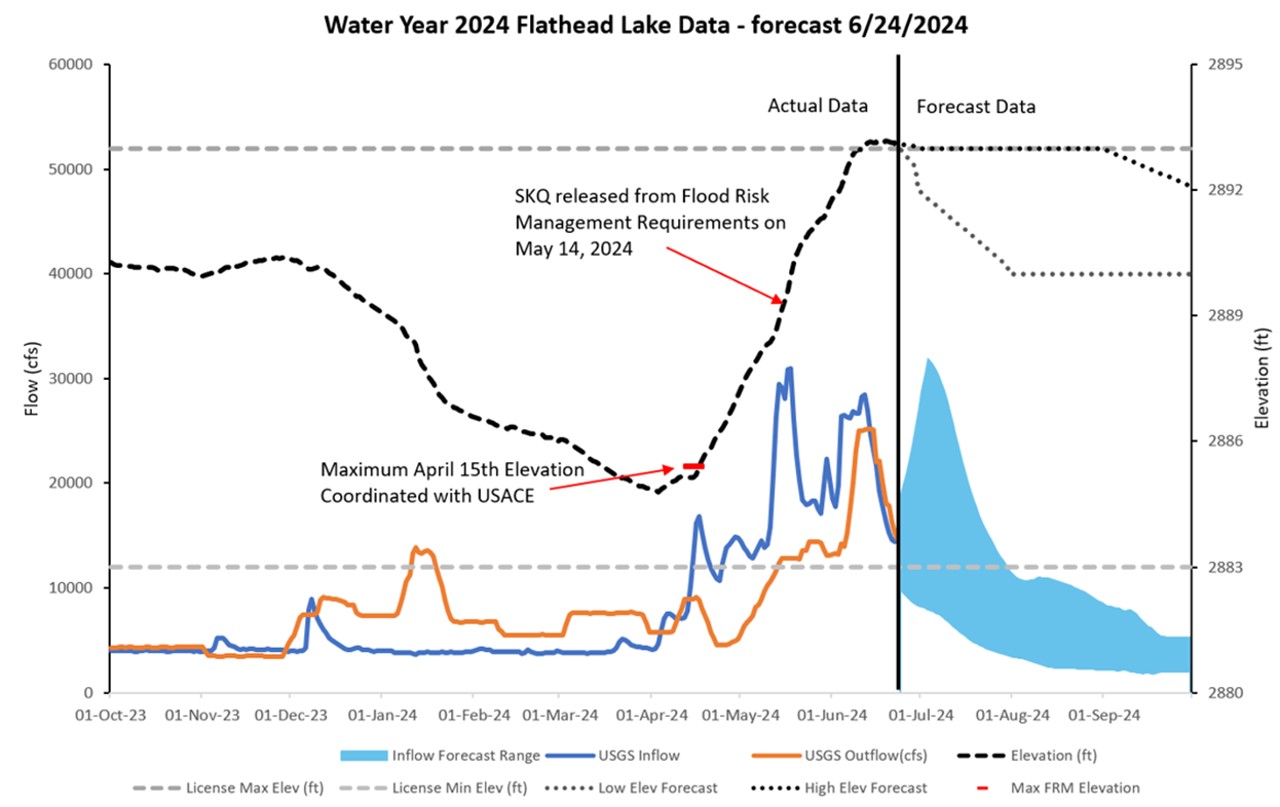
Flathead Lake remains at full pool. The water supply forecasts did not change much this week and summer flow volume remains near 63% of average. Project outflows will continue decreasing as Flathead Lake inflows recede.
SKQ project outflows and the Flathead Lake elevation are dependent on many variables including lake inflows, weather, the demand for electricity, and non-power constraints such as the downstream fishery and flood risk management needs.
June-17-2024_Lake-Data
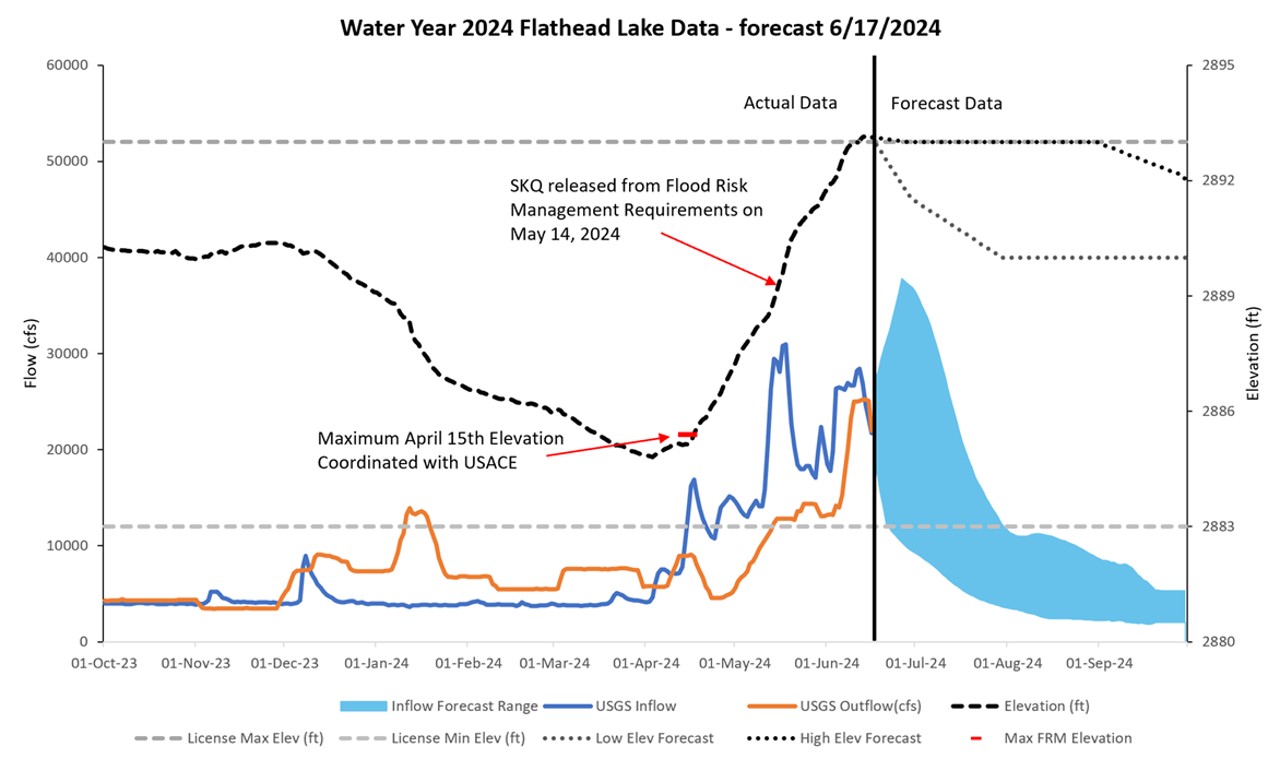
Flathead Lake remains at full pool. The water supply forecasts did not change much this week and summer flow volume remains near 64 percent of average. Project outflows will continue decreasing as Flathead Lake inflows recede. SKQ project outflows and the Flathead Lake elevation are dependent on many variables including lake inflows, weather, the demand for electricity, and non-power constraints such as the downstream fishery and flood risk management needs.